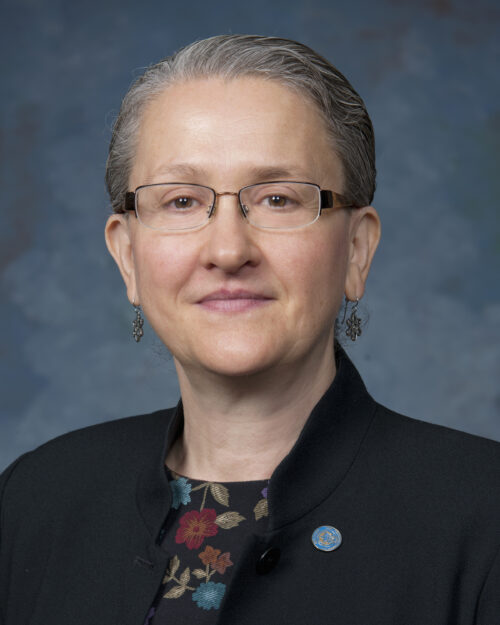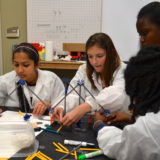May 5, 2025

Meet Dr. Rose Pesce-Rodriguez, a research chemist at the DEVCOM Army Research Laboratory in Aberdeen Proving Ground, Maryland, where she has worked for 35 years. With a Ph.D. in chemistry, she specializes in the analytical chemistry of energetic materials, such as ammunition and explosives.
Read on to learn more about Dr. Pesce-Rodriguez!
How did you first find AEOP? What made you decide to participate?
I got involved volunteering with Gains in the Education of Mathematics and Science (GEMS) about 20 years ago. My colleague and friend, Dr. Sandy Young, and I started the GEMS program at Aberdeen Proving Ground (APG) in 2006. Initially, we managed all aspects of the program, and for the last 15 years, I’ve taught one to two classes for GEMS each year. As a volunteer, I have also run virtual programs for our ARL-West program. This year will mark my 20th year teaching at GEMS, and I am very proud of that accomplishment!
What’s one of your favorite memories from your time participating in GEMS?
When we started GEMS at APG, we ran the program in the building where I work and brought students to our labs so that they could use the same equipment we use for our research. For four weeks every summer, colleagues would see us leading groups of students around the halls. One day, a colleague asked why we spent so much time volunteering with students on top of doing our “day jobs.” I told him to ask me that in 20 years- at the time, it was hard to know what kind of return on investment we’d see from our efforts.
Now that 20 years have passed, I can say that the investment has paid off. We’ve definitely inspired students to pursue careers in science.
Serving as a role model for students has always been important for me. From a more personal standpoint, doing outreach the way I do has also been incredibly rewarding. Incorporating programmatic themes selected each year by the American Chemical Society (ACS) for Chemists Celebrate Earth Week and National Chemistry Week – has allowed me to broaden my knowledge of chemistry and deepened my appreciation for how inter-connected the sciences are. It has been the best professional development course that one could ask for – and it has made me better in my day job too!
How else are you involved in STEM education?
I also volunteer for STEM outreach outside of my work at the research lab. My “Chemistry in the Library” program started at a single library branch in Howard County, Maryland in 2003. Since then, it has grown into a program that reaches students in 16 branches across 5 Maryland counties for spring/summer and fall/winter programs. I typically work with about 1,000 participants over the course of a year.
What future goals do you have? How has AEOP helped you get closer to them?
I am at the end of my Army career now, as I plan to retire at the end of the year. However, I will continue to volunteer with STEM programs through the ACS, and I may also continue to teach GEMS programs at ARL as a retiree.
What would you say to those interested in AEOP STEM programs? Any advice?
For students, I think AEOP offers great opportunities to explore new ideas, discover potential careers and connect with mentors. For those considering volunteering with AEOP programs as instructors or mentors, I highly encourage you to give it a try. Working with students is a rewarding experience and it’s also a great way to strengthen your own presentation skills.To learn more about GEMS, click here.

Gains in the Education of Mathematics and Science (GEMS)
Gains in the Education of Mathematics and Science (GEMS) is an U.S. Army-sponsored, summer STEM enrichment program for middle and high school students that takes place in participating U.S. Army research laboratories and engineering centers.
More About Gains in the Education of Mathematics and Science (GEMS)Find a Volunteering Opportunity
Visit our Program Volunteers page for a tool to find the best opportunity for you.
